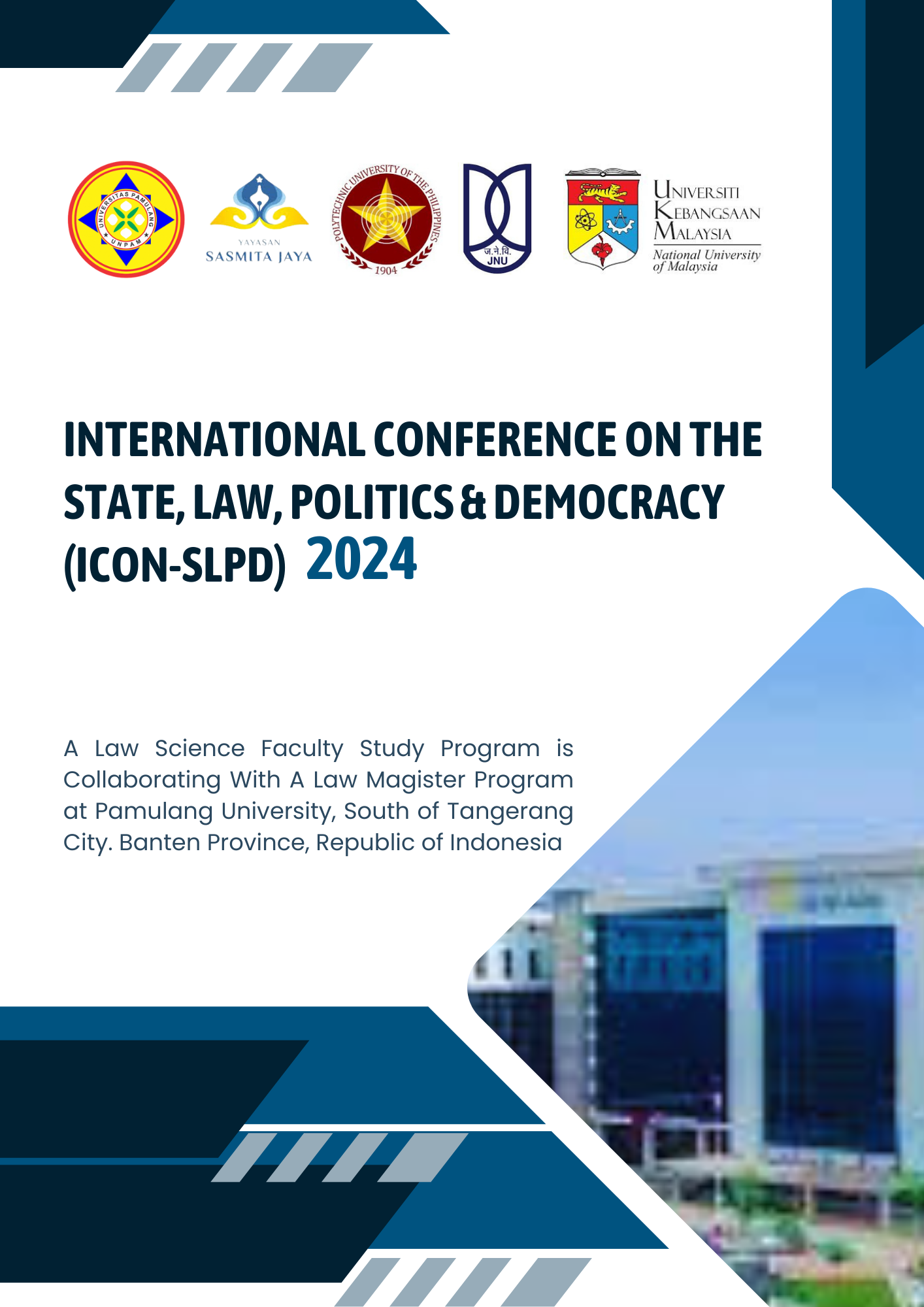Restorative Justice Principles Serve as the Foundation of Criminal Justice Proceedings
Keywords:
Law, Restorative Justice, Criminal ActAbstract
Restorative justice offers the opportunity for criminal resolution through mediation between victims and offenders via family group discussions and community-based services. The implementation of restorative justice principles relies on a country's chosen legal framework. While it may not be the primary system, integrating restorative justice principles can still enhance justice, certainty, and the effectiveness of the law. In Indonesia, law enforcement faces numerous unresolved issues, particularly concerning criminal cases within society. The expected fairness from law enforcement remains elusive for many Indonesians. Additionally, the country's criminal justice system lacks adequate provisions for victim support, often sidelining their needs in favor of focusing solely on perpetrators. Protecting victims' rights is integral to upholding human rights standards; thus, ensuring their rights are safeguarded is paramount. In Indonesia's current system, victims often receive less protection compared to suspects, highlighting the need for a more balanced approach. Progress towards justice for both victims and perpetrators requires law enforcement to adopt a progressive mindset, allowing flexibility in rule interpretation to better align with societal justice expectations, as the law is not merely a set of texts but a tool for achieving desired justice outcomes. in a country that does not adhere to restorative justice because it does not rule out the possibility of applying a principle of restorative justice to obtain justice, certainty and benefits in law enforcement because it cannot resolve a problem in cases of criminal acts by one party against another to fulfill a sense of justice. for law enforcement that the public cannot yet experience in the criminal justice system in Indonesia. Implementing Restorative Justice will ensure that criminals will not repeat crimes in the future. Because progressive law is a law made by humans, institutions that make regulations must reflect an integration that reflects justice so that the law that is formed is expected to be right on target and create justice and order that is desired by victims and the community, a legal state that is transparent and creates a belief in the country in implementing restorative justice
References
Eva Achjani Zulfa. Keadilan Restoratif,Badan Penerbit FH UI, Jakarta, 2009, hlm.17
John Braithwaite, Restorative Justice & Responsive Regulation, (England: Oxford Universit Press, 2002), 3
Lilik Mulyadi, “Penyelesaian Perkara DiLuar Pengadilan Melalui DimensiMediasi Penal (Penal Mediation Dalam Sistem Peradilan Pidana.
Lasmadi, Sahuri, Mediasi Penal Dalam Sistem Peradilan Pidana Indonesia. Journal Unja 2011, hm 6
Muladi, Kapita Selekta Sistem Peradilan Pidana, (Semarang: BP Universitas Diponegoro, 2015), hlm. 127-129
Peter Mahmud Marzuki, Penelitian Hukum, (Jakarta: Kencana Prenada Media Group, 2015), hlm. 35
Rudi Rizky (ed), Refleksi DinamikaHukum (Rangkaian Pemikiran dalam DekadeTerakhir), Perum Percetakan Negara Indonesia, Jakarta, 2008, hlm. 4.
Rudi Rizky (ed), Refleksi Dinamika Hukum (Rangkaian Pemikiran dalam Dekade Terakhir), 58
Satjipto Rahardjo, Masalah Penegakan Hukum Suatu TinjauanSosiologis, (Jakarta: Badan Pembinaan Hukum Nasional Departemen Kehakiman,1993), 116.
Setyo Utomo, Sistem Pemidanaan Dalam Hukum Pidana Yang BerbasisRestorative Justice, Mimbar Justitia Fakultas Hukum Universitas Suryakancana, Volume 5 Nomor 01, hlm. 86
Saut P. Panjaitan, Dasar-Dasar Ilmu Hukum: Asas, Pengertian, dan Sistematika, (Palembang, Penerbit Universitas Sriwijaya, 2014), hlm. 158-159
Teguh Prasetyo, Filsafat, Teori dan Ilmu Hukum: Pemikiran Menuju Masyarakat yang Berkeadilan dan Bermartabat, Jakarta: PT Raja Grapindo Persada, 2012, h. 312 Penerbit Universitas Sriwijaya, 2014), hlm. 158-159
Yudha Bhakti Ardhiswastra, Penafsiran dan Konstruksi Hukum, (Bandung: Alumni, 2018), hlm. 9
Muhammad Zainul Arifin, Penerapan Prinsip Detournement De Pouvoir Terhadap Tindakan Pejabat Bumn Yang Mengakibatkan Kerugian Negara Menurut Undang-Undang Nomor 17 Tahun 2003 Tentang Keuangan Negara, Jurnal Nurani, http://jurnal.radenfatah.ac.id/index.php/Nurani/article/view/2741/2070
Muhammad Zainul Arifin, Kajian Tentang Penyitaan Asset Koruptor Sebagai Langkah Pemberian
Undang-Undang Republik Indonesia Nomor 48 Tahun 2009 Tentang Kekuasaan Kehakiman
Undang-Undang Dasar Republik Indonesia Tahun 1945
Perja Nomor 15 Tahun 2020. Peraturan Jaksa Agung





